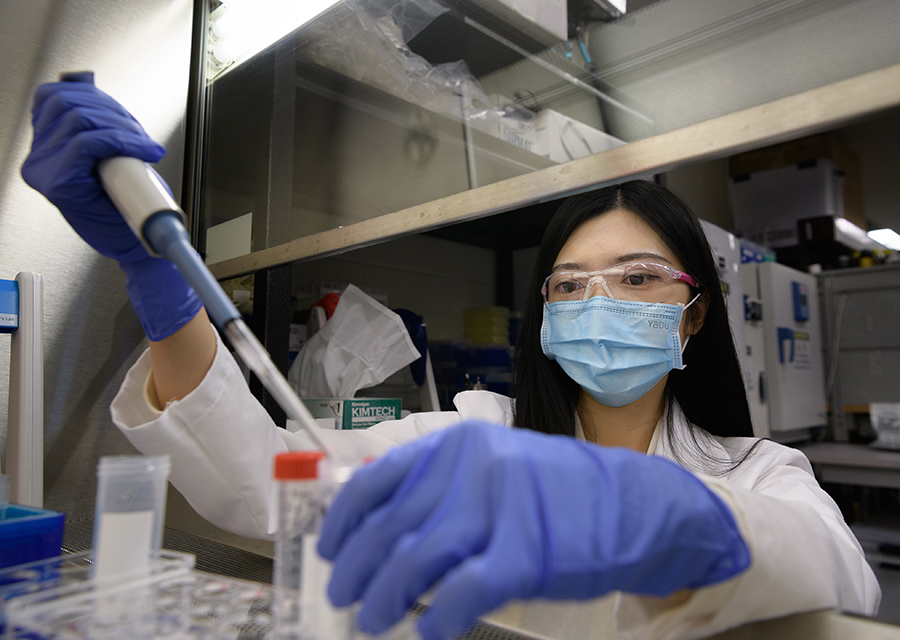School of Health Sciences Research
View School
Research
The School of Health Sciences engages in a variety of interdisciplinary research areas, all focused on advancing human health. From disease treatment and prevention to examining the effects of toxins and chemicals that threaten workplaces and the environment — our researchers collaborate to understand prevalent issues across radiation protection, imaging sciences, medical physics, occupational and environmental health sciences and toxicology.
Research Labs/Centers
Faculty members in the School of Health Sciences have access to extensive laboratories and equipment as they conduct innovative research and foster high-quality, hands-on learning. In addition to lab spaces, Purdue’s campus offers access to a nuclear reactor, linear accelerator, accelerator mass spectrometer, transmission and scanning electron microscopes and high-performance liquid chromatography, supercomputing facilities and accredited animal facilities. The diagnostic X-ray and radiation oncology facilities of the Indiana University School of Medicine in Indianapolis are utilized in the medical physics graduate program.
Available equipment and facilities
- Intrinsic Ge detectors with PC-based multichannel analysis capabilities
- Liquid scintillation counters
- Gamma counters
- Thermoluminescent dosimeter readers
- Gamma cameras
- Medical X-ray devices
- High-level gamma irradiators
- Portable radiation monitoring equipment
- Calibrated radon standards
- Non-ionizing radiation and electromagnetic field monitoring equipment
- Gas chromatograph units
- High-pressure liquid chromatographs
- High-speed and ultracentrifuges
- UV-visible spectrophotometers
- Particle size spectrometer
- Monodisperse aerosol generator
- Instruments to measure pulmonary function
- Cell culture facilities
- Molecular biology equipment
- High-resolution microarray scanner
- State-of-the-art in vivo and in vitro brain barrier transport facility
- ELISA
- High pressure microwave tissue digestion system
- Preclinical Photoacoustic Scanner
- Eclipse stations for Radiation Treatment Planning
- 3T Human MRI (GE Signa)
- 7T preclinical MRI (Bruker)
Life Science MRI Facility
The Life Science MRI Facility is a collaborative facility supported by the College of Health and Human Sciences, which houses a 3T Siemens MAGNETOM Prisma MRI scanner, allowing faculty in the School of Health Sciences to advance life science research and better understand human health and disease.